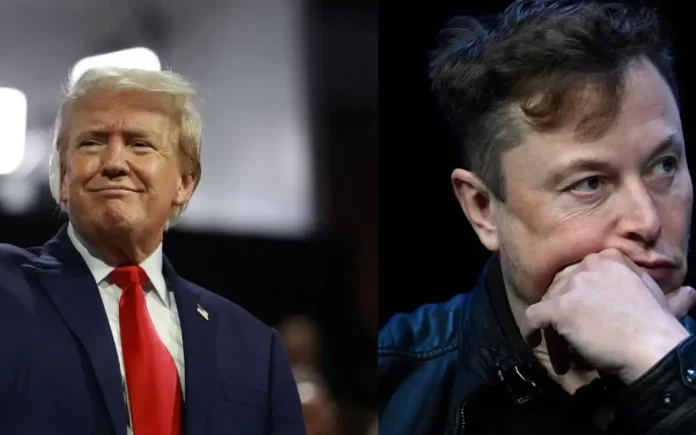Billionaire entrepreneur Elon Musk has long criticized U.S. federal oversight, arguing that regulatory investigations have hampered Tesla’s ambitions to lead in autonomous vehicle technology. With Donald Trump back in the White House, many of those federal obstacles could soon be dismantled, raising concerns among safety advocates.
Federal Probes and Safety Mandates in Question
Key investigations into Tesla’s autonomous driving systems, including a Justice Department probe into whether Musk and Tesla overstated their vehicles’ self-driving capabilities, could soon be scrapped. Additionally, federal mandates requiring crash data reporting for vehicles equipped with Tesla’s Autopilot technology may be rescinded.
Also Read: Elon Musk’s Consortium Makes $97 Billion Play for OpenAI
Critics warn that rolling back these oversight measures could pose significant safety risks. “Musk wants to run the Department of Transportation,” said Missy Cummings, a former senior safety adviser at the National Highway Traffic Safety Administration (NHTSA). “There are numerous ongoing investigations into Tesla, and they could all disappear.”
Musk’s Influence in the Trump Administration
Musk’s close relationship with Trump has already sparked swift action against regulatory agencies. Within days of Trump’s return to office, the administration moved to freeze federal spending and dismiss government watchdogs, including career prosecutors overseeing corporate investigations.
Although the White House has not explicitly confirmed any actions benefiting Tesla, analysts suggest that shutting down investigations and rolling back safety regulations would be a simpler task compared to broader efforts to weaken government oversight.
“The bromance between Trump and Musk will essentially lead to the defanging of regulatory agencies that have been scrutinizing Tesla,” said Daniel Ives, a veteran Wall Street technology and auto industry analyst.
Musk’s Expanding Empire and Government Ties
Musk’s business interests extend beyond Tesla, with federal scrutiny also targeting his aerospace company, SpaceX, and social media platform, X. Despite these investigations, Musk’s companies have secured significant government contracts. Since 2008, SpaceX has received nearly $20 billion in federal funds, while Tesla has benefited from government contracts worth $41.9 million.
Musk’s support for Trump’s reelection campaign, including a $270 million donation, has further strengthened his influence. In return, Trump appointed Musk to oversee the Department of Government Efficiency (DOGE), a role that has drawn legal challenges. Operating from the Eisenhower Executive Office Building, Musk has taken an active role in reshaping federal oversight and regulatory policies.
Tesla’s Regulatory Challenges and Stock Market Impact
Musk’s growing political clout has already had tangible effects on Tesla. The company’s stock surged by more than 60% in late 2024, following Trump’s election, before stabilizing at a level still significantly higher than pre-election prices.
In the weeks leading up to Trump’s inauguration, his transition team proposed measures that would benefit Tesla, including the elimination of federal crash data reporting requirements for autonomous and semi-autonomous vehicles. Additionally, the team recommended the removal of a $7,500 federal tax credit for electric vehicle purchases—an action Musk publicly supported, arguing that Tesla no longer needed such incentives.
While Tesla could withstand such a policy shift, analysts warn that other electric vehicle manufacturers still reliant on subsidies could face significant financial strain.
The Safety Debate: Tesla Crashes and Accountability
Amid these regulatory changes, victims of Tesla-related crashes fear a weakening of safety oversight. Families impacted by Tesla accidents argue that federal investigations have played a crucial role in uncovering defects and pushing for recalls.
One such case involved 22-year-old Naibel Benavides Leon, who was struck and killed by a Tesla operating on Autopilot in Florida. A federal investigation determined that Autopilot had failed to respond to multiple warning signs before the crash.
“We, as a family, have never been the same,” said Benavides Leon’s sister, Neima. “Technology must be held to the highest standards of safety and accountability.”
Tesla has denied responsibility in such incidents, arguing that drivers ultimately bear responsibility for vehicle operation. The company maintains that its self-driving systems are designed to enhance, rather than replace, human control.
Future of NHTSA and Federal Oversight
The NHTSA, the agency with the greatest regulatory power over Tesla, is currently conducting multiple investigations into the company’s Autopilot and Full Self-Driving (FSD) systems. These inquiries have been prompted by a series of crashes, including those involving pedestrians and emergency vehicles.
NHTSA’s past enforcement efforts have forced Tesla to issue software updates to address safety concerns. However, analysts warn that under the Trump administration, the agency’s ability to enforce recalls or impose stricter regulations could be significantly weakened.
“NHTSA has been a thorn in Musk’s side for over a decade,” said Ives. “With Trump back in office, the regulatory landscape is shifting in Musk’s favor.”
Despite Musk’s criticisms of regulatory intervention, industry experts argue that Tesla’s self-driving technology remains underdeveloped. Bryant Walker Smith, an automated vehicle specialist at Stanford Law School, contends that Musk’s claims of government obstruction serve as a scapegoat for Tesla’s ongoing technological challenges.
“The issue isn’t federal regulation holding back innovation,” Smith said. “The problem is that Tesla’s autonomous technology is still far from being truly self-driving.”
Outlook: Regulatory Challenges and Market Impact
As Musk solidifies his influence within the Trump administration, Tesla’s regulatory future remains uncertain. While efforts to scale back government oversight could benefit the company in the short term, safety advocates warn of long-term consequences for consumers and industry standards.
With key federal investigations hanging in the balance, the coming months will be critical in determining whether Tesla’s regulatory battles will come to an abrupt end—or if safety concerns will prompt continued scrutiny despite the shifting political landscape.



